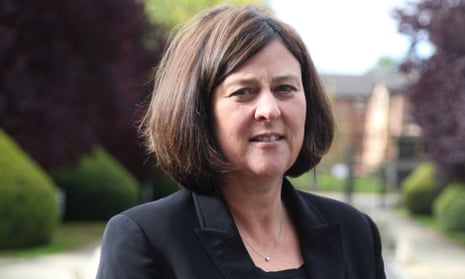Britain’s police commissioners are calling on the Crown Prosecution Service to withdraw a controversial new form issued to rape complainants telling them to hand over their mobile phones or risk seeing their case discontinued.
The Association of Police and Crime Commissioners (APCC), whose members include a commissioner who is a rape victim, told the Observer that use of the form would result in a loss of confidence in the police, the CPS and the criminal justice system.
It is highly unusual for the association, whose elected members hold the UK’s police forces to account, set their objectives and appoint chief constables, to make such a public criticism of the police and prosecutors. Its decision to speak out reflects the association’s deep unease about the new measure, which potentially applies to all criminal cases but has become of particular concern to support groups for rape victims.
“Rape and sex offence complainants are telling us that, unless they grant unfettered access to their mobile devices, they are told that their case will not be proceeded with,” said the APCC’s victims lead, Dame Vera Baird. “There are also a large number of examples where material unconnected to the facts of the case and sometimes on entirely different topics has been handed by the CPS to the defence and used at court to try to discredit the complainant. These examples are all from sexual assault and rape cases.”
Police officers stress that they already examined defendants’ phones as part of routine investigations, and the CPS insists that the new form has been introduced to help them seek informed consent proportionately and consistently. It took the action amid concerns, first raised in 2017, that vital evidence had been withheld from defence lawyers in scores of rape cases. The CPS said that police and prosecutors had been given clear guidance that they should seek access to personal data from rape complainants only when necessary and proportionate.
But the APCC’s deputy victims lead, Julia Mulligan, who in January revealed that she was raped when she was 15, said: “As someone with lived experience, I can tell you that it is hard enough having to live through a sexual attack or rape without having to expose oneself to this ‘in return’ for an investigation. And to be told you have no chance of justice without doing so is truly awful.”
On Friday, in an attempt to staunch criticism, the police and the CPS invited victims’ groups to help them improve the form. It states that “mobile phones and other digital devices such as laptop computers, tablets and smart watches can provide important relevant information and help us investigate what happened. This may include the police looking at messages, photographs, emails and social media accounts stored on your device.”
It continues: “If you do not provide consent for the police to access data from your device you will be given the opportunity to explain why. If you refuse permission for the police to investigate, or for the prosecution to disclose material which would enable the defendant to have a fair trial, then it may not be possible for the investigation or prosecution to continue.”
Baird said: “While we recognise that police must pursue all reasonable lines of inquiry and disclose anything that may undermine the prosecution or assist the defence, this form has been called a digital strip search by campaigners.
CPS policy officials have admitted that demands for this kind of material have gone too far in the past.”
The CPS and National Police Chiefs’ Council said that they had been “very clear” that devices should be looked at only when relevant, and that private information not connected to the case should not be shared with the defence or shown in court.
“The dreadful stories from victims this week demonstrate exactly why we have been so keen to introduce a clearer, more consistent approach to gaining consent for accessing data,” they said. “We have invited key groups to work with us as we continue to develop guidance and look for solutions to the complex balancing act between privacy and a fair investigation.”
However, David Lloyd, the APCC’s criminal justice lead, said that the CPS needed to go further. “We have no doubt that this form, as it currently stands, should be withdrawn, or it is likely to result in a loss of confidence in the police, the CPS and the criminal justice system more broadly. Many companies have made clear that technology can help us with this issue – allowing prosecutors and police to have access only to relevant information on mobile devices.”
